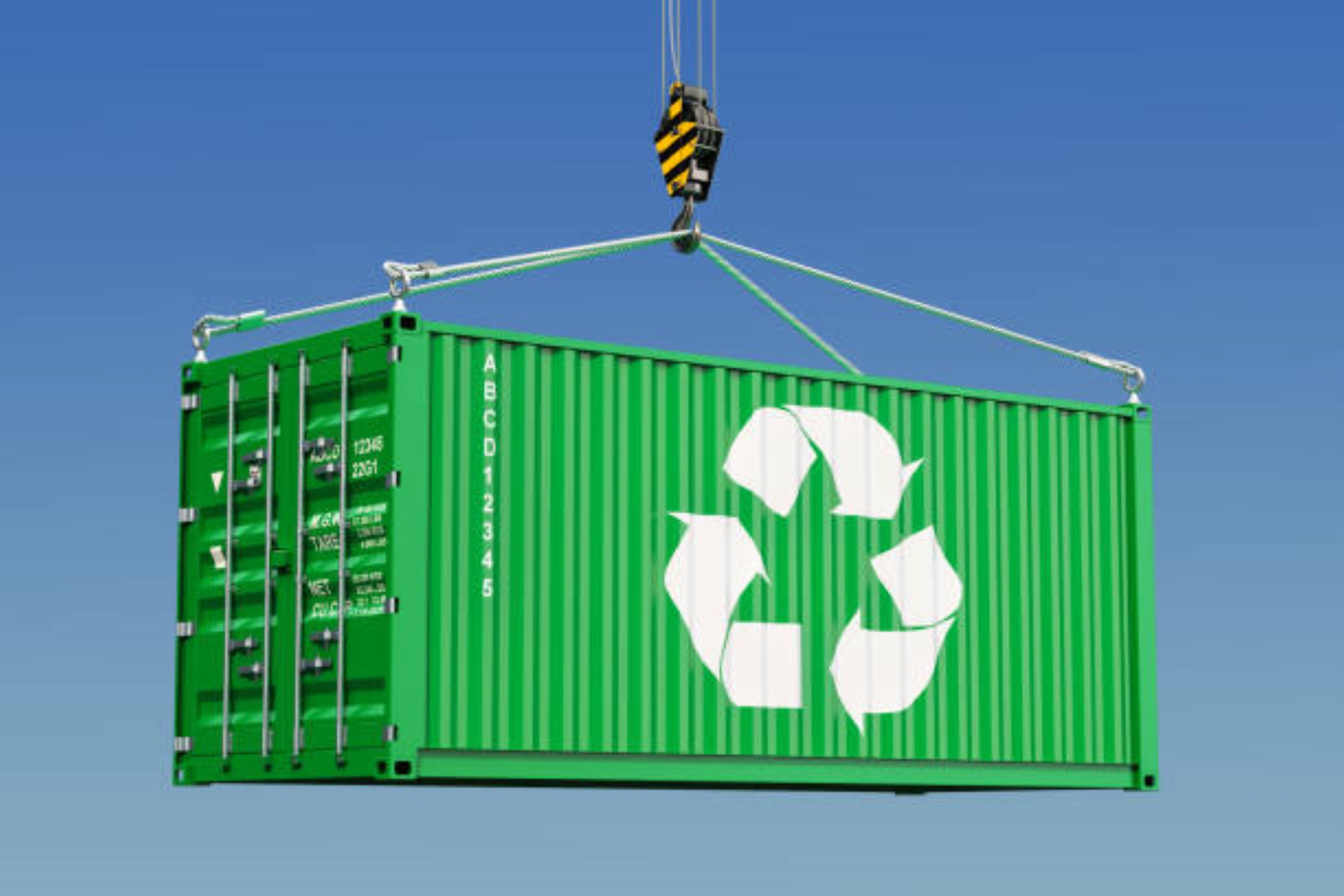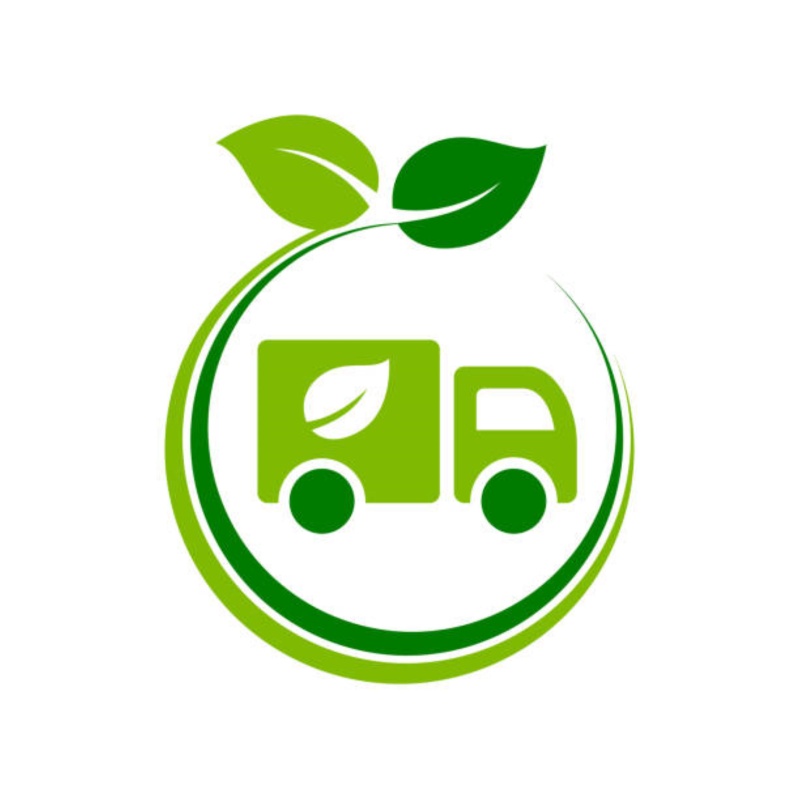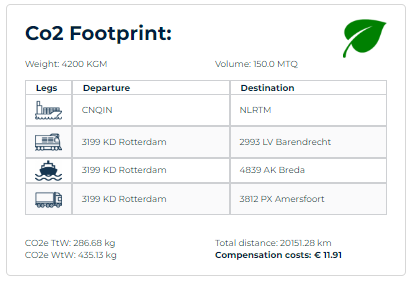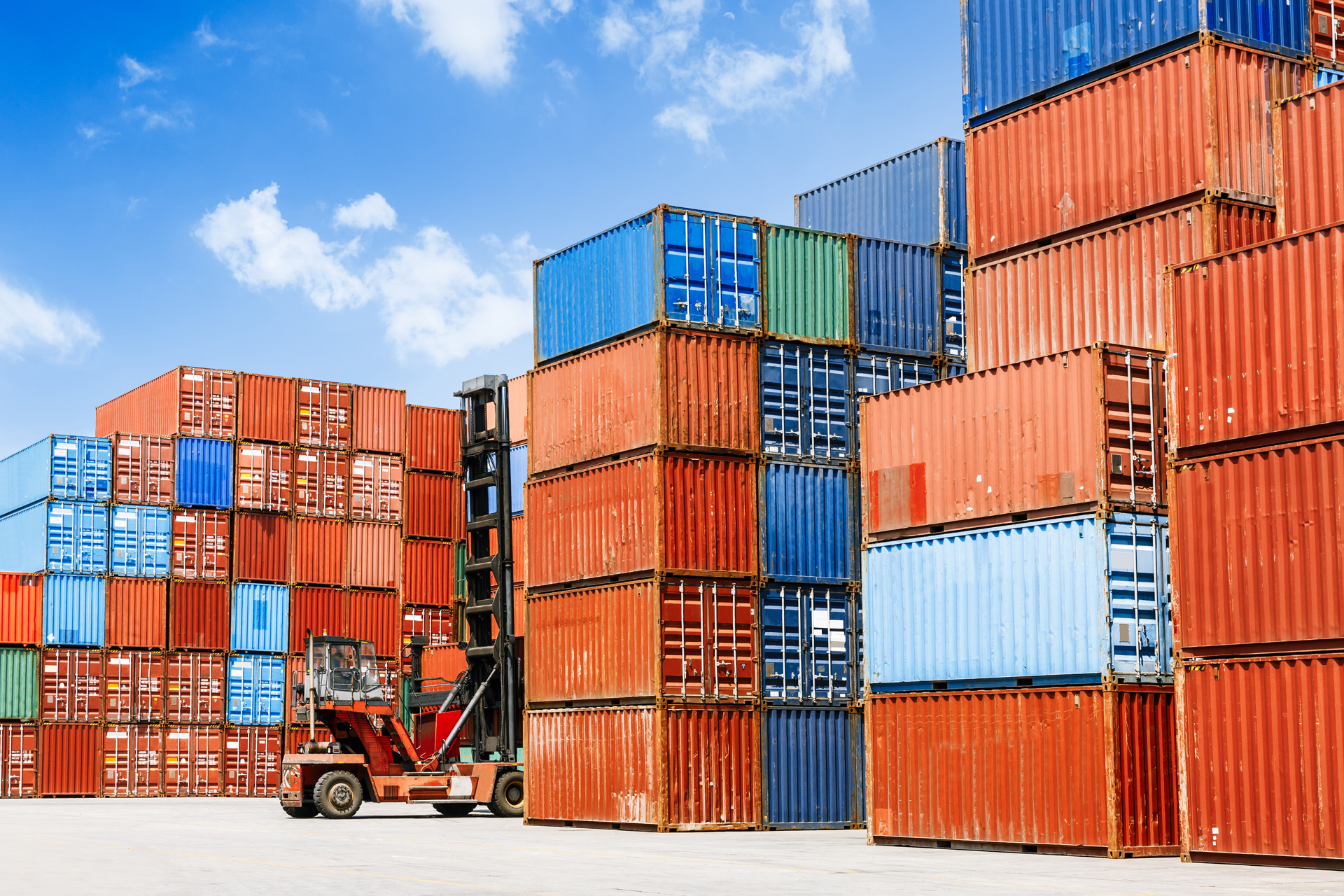Sustainability
Impact on your logistics and the world
We are aware of the impact our industry has on the world's livability. Sustainability is, therefore, an important theme, and we actively seek ways to contribute to this together with the market.

The sustainability of our trade world
Climate change has been one of the most discussed topics in recent years. No one can ignore the rising sea levels, melting ice caps, and unusually high temperatures. 2023 was the warmest year ever recorded, with CO2 levels and other greenhouse gases at unprecedented heights. This has consequences not only for the world economy but also for ourselves. In the logistics sector, we see the effects of this like nowhere else.

Insight into CO2 emissions through our portal
Thanks to our automatic Excel Reporter via the online portal, you can now receive periodic reports tailored to your needs. You have complete control over the frequency, layout, and data of the reports you want to receive. Moreover, we have added a new template to the Excel Exporter, designed explicitly for creating overviews of CO2 emissions. This template is fully adjustable to your wishes, and you can copy and adjust it.

As an NVOCC (Non-Vessel Operating Common Carrier), we do not own ships, trucks, or other vehicles. However, we are proud to work with shipping companies and hinterland transporters who are committed to reducing harmful gas emissions. We increasingly use barges (inland shipping) and trains as more environmentally friendly alternatives.
The "Low Sulphur" and "IMO2020" surcharges have been introduced to reduce both the sulfur content and total emissions of ships. Shipping companies have made extra efforts by investing in liquefied natural gas (LNG) as an environmentally friendly alternative. By working as much as possible with these progressive shipping companies, we actively contribute to making transport more sustainable and strive for maximum standardization within the sector.
Developing our offices
In our offices, we strive for a more sustainable world. Our order management system has been carefully developed to reduce paper use and promote digitization. We maintain a "keep it on the screen" policy, where documents and emails are digitally archived instead of being printed out.
Our building has light sensors that automatically turn off when a room is unused. To reduce the use of plastic, it is collected and recycled separately, just like our paper. We encourage working from home and promote the use of bicycles for commuting.

